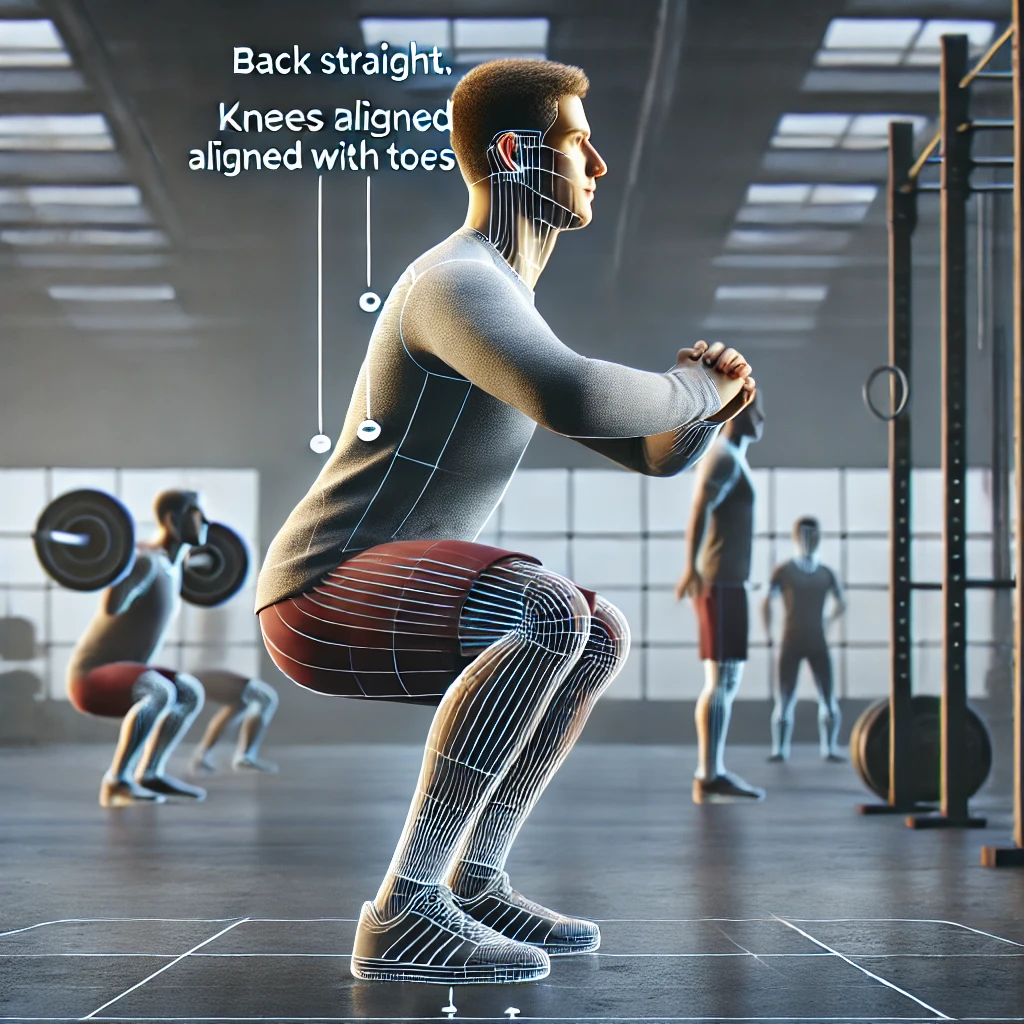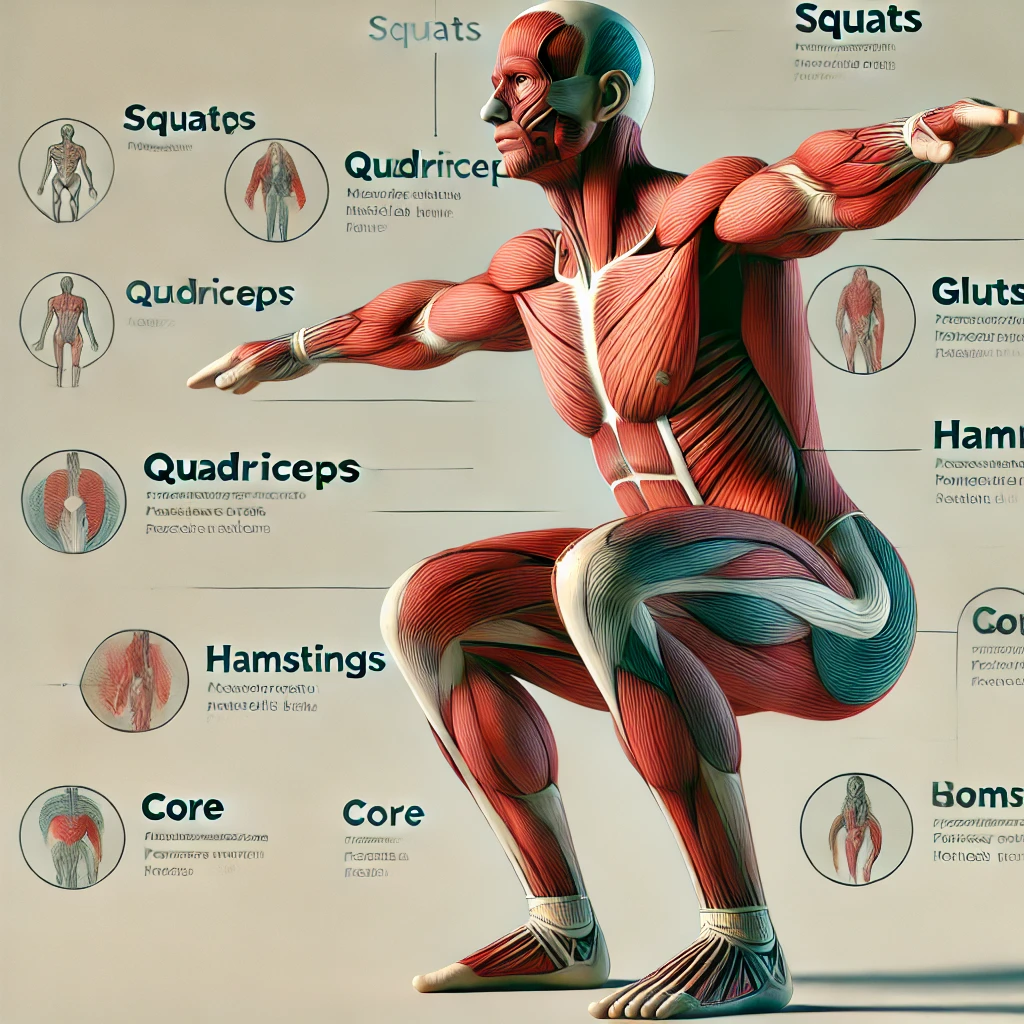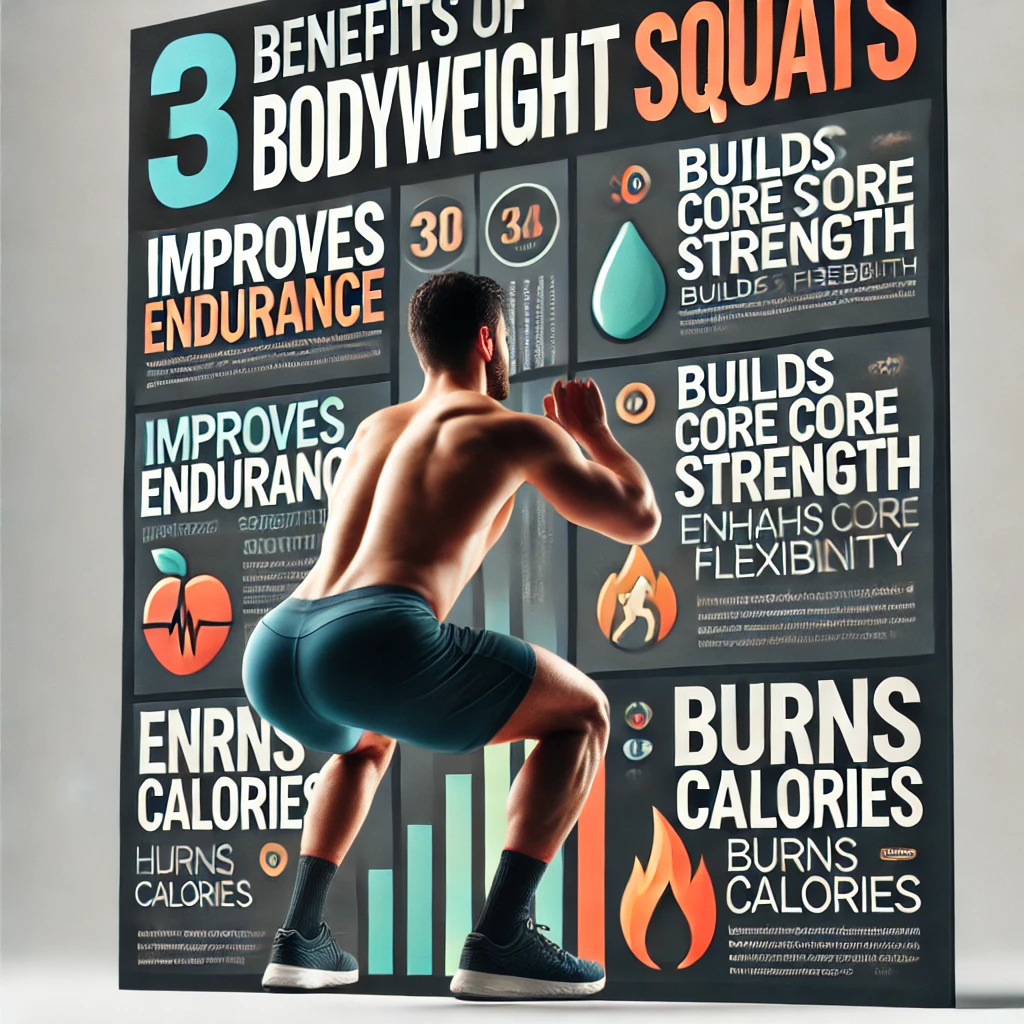Regarding fitness, people often ask whether bodyweight exercises can provide real strength gains. Bodyweight squats are a popular choice among these exercises due to their simplicity and versatility. But can performing 100 bodyweight squats daily build strength, or does it improve endurance? Let’s explore the mechanics, benefits, and limitations of this exercise to understand its true potential, are you ready to read Can 100 Bodyweight Squats Build Strength? happily, remember you do training in your home.
The Science Behind Strength and Muscle Building
Before diving into the specifics of bodyweight squats, it’s important to clarify what “building strength” means. Strength training typically involves lifting heavy weights or performing resistance-based movements that cause micro-tears in the muscle fibers. These micro-tears, when repaired, result in stronger and sometimes larger muscles.
Bodyweight squats, on the other hand, rely solely on the weight of your body. They are a form of calisthenics, and their ability to build strength largely depends on the intensity, frequency, and progression of the exercise.
What Happens When You Do 100 Bodyweight Squats Every Day?
Performing 100 bodyweight squats daily can have several effects on your body, including:
- Improved Muscular Endurance
Repeating a high number of reps conditions your muscles to resist fatigue, improving endurance over time. While this isn’t the same as building maximum strength, it helps your muscles sustain effort for longer periods. - Strength Gains in Beginners
If you’re new to exercise or have limited lower body strength, bodyweight squats can indeed provide initial strength gains. The repetitive motion strengthens your quadriceps, glutes, and hamstrings. - Enhanced Core Stability
Squats engage the core muscles to stabilize your body during the movement. Over time, this improves core strength and balance. - Joint and Mobility Benefits
Performing squats regularly helps improve flexibility and mobility in your hips, knees, and ankles. Strong, mobile joints are crucial for overall functional fitness.

Muscle Groups Worked During Bodyweight Squats
Here’s a breakdown of the primary muscle groups engaged during bodyweight squats:
| Muscle Group | Function |
|---|---|
| Quadriceps | Straighten the knee and lift the body upward |
| Gluteus Maximus | Extends the hip joint during upward motion |
| Hamstrings | Assist in knee flexion and hip extension |
| Calves (Gastrocnemius) | Stabilize the ankle during the movement |
| Core (Abs and Obliques) | Stabilize the body and maintain balance |

Benefits of 100 Bodyweight Squats a Day
1. Builds a Solid Foundation
For beginners, bodyweight squats are an excellent way to build foundational strength. They prepare your muscles, tendons, and joints for more advanced exercises, reducing the risk of injury when you progress to weighted squats or other strength-training activities.
2. Improves Cardiovascular Fitness
Performing 100 reps in one go can elevate your heart rate, giving you a cardio boost. It’s not a substitute for running or cycling, but it contributes to overall cardiovascular health.
3. Enhances Functional Strength
Bodyweight squats mimic daily movements like sitting and standing, which means they enhance practical, everyday strength. This is particularly beneficial for older adults or those recovering from injuries.
4. Burns Calories and Aids Fat Loss
Squats are a dynamic movement that burns calories. While they’re not as effective as high-intensity interval training (HIIT) for fat loss, 100 daily squats can contribute to a calorie deficit when combined with a healthy diet.
5. Boosts Mental Discipline
Committing to a daily challenge builds mental toughness and creates a routine. The discipline required to complete 100 squats daily can spill over into other areas of life.

Can Bodyweight Squats Replace Weighted Squats?
Weighted squats, performed with barbells, dumbbells, or kettlebells, are the gold standard for building lower-body strength. Bodyweight squats, while effective for beginners and endurance training, cannot replace the strength-building potential of heavier resistance.
However, bodyweight squats can complement a strength-training routine by:
- Serving as a warm-up or active recovery exercise.
- Allowing you to practice proper form before progressing to weights.
- Acting as a conditioning tool to enhance muscular endurance.
Tips to Maximize Results with 100 Bodyweight Squats
If you’re committing to a daily squat routine, here are tips to ensure optimal results:
- Focus on Form
Proper form prevents injuries and ensures you’re targeting the right muscles. Keep your back straight, knees aligned with your toes, and lower yourself as deep as your mobility allows. - Break into Sets
Instead of doing all 100 squats at once, try breaking them into sets (e.g., 4 sets of 25). This helps maintain consistency in your form and reduces fatigue. - Increase Difficulty
Incorporate variations such as jump squats, Bulgarian split squats, or one-legged squats (pistol squats) to keep challenging your muscles. - Combine with Other Exercises
Include lunges, deadlifts, or push-ups to create a balanced workout routine targeting other muscle groups. - Track Progress
Keep a journal of your daily performance, noting improvements in form, stamina, and strength over time.
Conclusion: Can 100 Bodyweight Squats Build Strength?
Performing 100 bodyweight squats daily can certainly improve muscular endurance, core stability, joint mobility, and functional strength, especially for beginners. While it may provide initial strength gains for those new to fitness, it is not a substitute for the strength-building potential of weighted exercises. However, bodyweight squats can complement a well-rounded fitness routine by preparing your body for more advanced movements and promoting overall health and discipline.
To maximize the benefits, focus on proper form, introduce variations, and combine them with other exercises. Whether you want to build a solid fitness foundation or enhance endurance, 100 daily bodyweight squats can be a valuable addition to your routine.
Conclusion
The conclusion to “Can 100 Bodyweight Squats Build Strength?” depends on the goals and fitness level of the individual.
- For beginners, 100 bodyweight squats can build strength, endurance, and muscle development as it challenge their muscles and improve neuromuscular coordination.
- For intermediate or advanced individuals, bodyweight squats are less likely to promote significant strength gains since strength is best built through progressive overloads, such as adding weights or increasing resistance. However, 100 squats can improve muscular endurance, stamina, and mobility.
- To maximize strength gains, incorporating a variety of squat techniques, adding resistance, and following a progressive training plan are recommended.
In summary, 100 bodyweight squats can build strength for beginners, but for ongoing strength development, progressively more challenging exercises are necessary.
